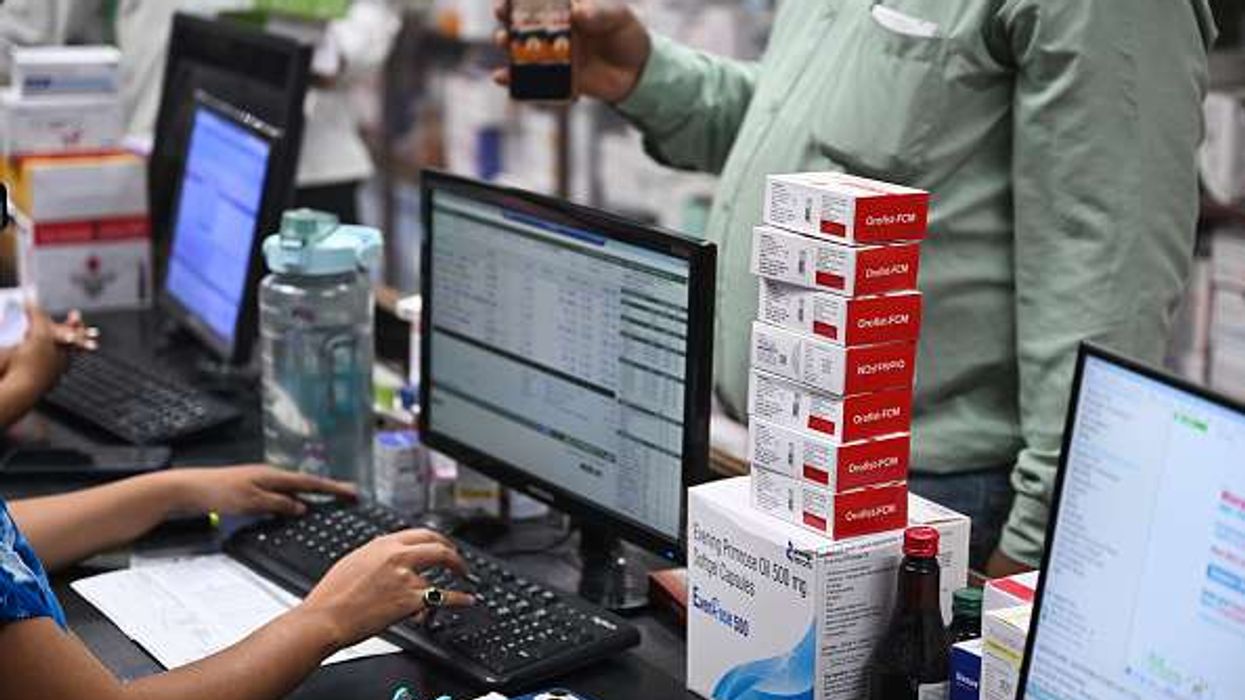Why is Data important in Pharmacy?
Data plays a significant role in our technology enabled lives. It has become one of the most valuable assets - every click and every swipe leads on to a data point which can be used to develop our digital persona.
We have all had that moment where we think ‘our phones are listening to us’ – in this instance we receive targeted advertising on products, we have discussed out loud. Similarly, gathering targeted data points of patients can support targeted healthcare delivery. Each prescription, dispensed item and line on the Summary Care Record can act as a data point for a patient, formulating a picture of that patient’s health.
In some areas this is known as a ‘Digital Twin’. Digital Twins are an incredible asset in patient care, but prior to discussing them it is critical to understand the data which underpins their development.
Exploring the role of data in pharmacy - the significance, types, sources, and applications of data can help transform the industry.
What is data?
Data is factual information which can be used as insights for informed decision making. Nominally data points are key areas whereby there is an interaction between a human and a computer, e.g. a click, a swipe, a blood test.
Data enables businesses and organisations to gain insights, predict trends to make evidence-based decisions. In the healthcare sector, data plays a focal role, as the outcomes can directly impact patient care, treatment plans, and healthcare delivery.
The importance of data in pharmacy
Historically, pharmacies have always generated numerous data points, however technology had not caught up with its utility until now.
Data is central to enhancing decision-making processes in pharmacy. Accurate data enables pharmacy teams to make informed decisions regarding medication management, patient safety, and treatment efficacy.
In terms of real-world application – our consultations are data gathering exercises. We utilise this data to make an informed decision on the patients issues and subsequently provide the most appropriate care e.g. a treatment, advice etc.
Technology can be used to transform and understand data. Using mathematical models, insights can be gained to support operations, patient safety and healthcare service delivery in a more efficient manner which may take a human longer to do. In some instances, this is also known as Artificial Intelligence which comes with its own regulatory requirements.
Data empowers pharmacy teams to engage in proactive healthcare. Future areas for usage in data consists of predictive analytics. These can identify patients of interest for example those at risk of non-adherence or potential side effects.
On a wider scale data also plays a role in public health initiatives, such as tracking vaccination rates and managing responses to health crises like pandemics.
Types of data in pharmacy
- Clinical Data: This includes patient health records, laboratory results, diagnostic images, and information about prescribed medications.
- Pharmaceutical Data: Data related to drug formulations, pharmacokinetics, pharmacodynamics.
- Operational Data: Data from pharmacy operations, including stock levels, sales records and staffing.
- Regulatory and Compliance Data: Involves data required to meet legal and regulatory standards, such as documentation for controlled substances and adverse event reporting.
- Patient-Generated Data: Information collected directly from patients, including medication adherence data, lifestyle information, and self-reported symptoms.
Sources of Pharmacy Data
- Electronic Health Records (EHRs): Comprehensive digital records of patients’ medical histories that facilitate coordinated care among healthcare providers.
- Pharmacy Management Records: Software solutions that handle prescription processing, inventory, and billing, streamlining pharmacy operations.
- Clinical Trials: Research studies that provide valuable data on drug efficacy and safety.
- Pharmacovigilance Databases (e.g. MHRA Yellow Card): Repositories that track adverse drug reactions and safety issues, supporting drug safety monitoring.
Challenges in Managing Pharmacy Data
- Data Privacy and Security: Protecting sensitive patient information from unauthorised access is paramount. Pharmacies must implement robust cybersecurity measures and comply with data protection regulations. E.g. DSPT toolkit.
- Data Integration: Combining data from various sources to create a cohesive and comprehensive dataset remains a challenge. Interoperability between different healthcare systems is essential for seamless data sharing.
- Data Quality: Ensuring the accuracy, consistency, and completeness of data is critical for reliable decision-making. Poor data quality can lead to medication errors and compromised patient safety.
Future Trends in pharmacy data
As technology advances, the role of data in pharmacy will continue to expand. Artificial intelligence (AI) and machine learning are set to revolutionise pharmacy practices by enabling predictive analytics, automating routine tasks, and uncovering new insights from complex datasets.
The future
Data will become an indispensable asset in pharmacy, driving improvements in patient care, operational efficiency, and drug development.
As technology continues to advance, the role of data in pharmacy will only grow, offering new opportunities for innovation and enhanced healthcare outcomes. Understanding the fundamentals of data in pharmacy is essential for professionals aiming to stay at the forefront of this evolving field.
 Dr Yasmin Karsan
Dr Yasmin KarsanWritten by Dr Yasmin Karsan, MRPharmS
Community Pharmacist, Clinical Safety Officer and AI Consultant.












